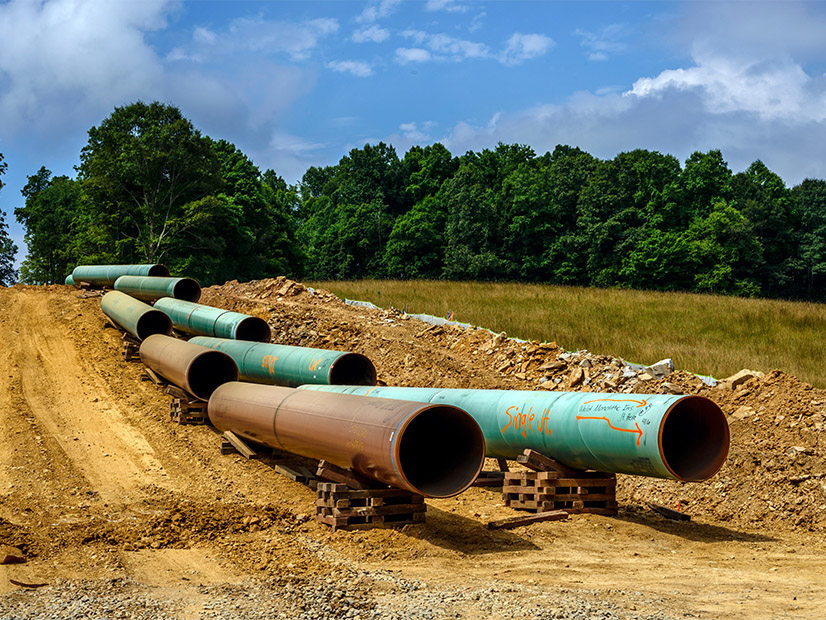FERC will have to take another look at the politically sensitive Mountain Valley Pipeline after the D.C. Circuit Court of Appeals on Friday remanded the commission’s decision to not perform a new environmental assessment of the project (21-1512).
Led by Equitrans Midstream Partners (NYSE:ETRN), the pipeline project, which has major backers including Sen. Joe Manchin (D-W. Va.), has been opposed by environmentalists and others who argue it is unneeded. Opponents have successfully challenged FERC and other agencies’ approvals for the project.
The pipeline, which Equitrans says is 94% complete, runs 303 miles from northwestern West Virginia to southern Virginia to bring shale gas to customers in the Southeast.
FERC granted a certificate to MVP back in 2017, but the project ran into delays as its permits from the Bureau of Land Management, Forest Service, Army Corps of Engineers, and Fish and Wildlife Service were successfully challenged in the courts. The company asked FERC for two extensions to in-service dates, which the commission granted, but those decisions were appealed by Sierra Club and others.
The pipeline now has until October 2026 to finish construction, and this year it regained two other federal permits from Fish and Wildlife, the Forest Service and the Bureau of Land Management. But this year has also seen additional legal setbacks, as the project’s permit from the West Virginia Department of Environmental Protection was vacated in April, which leaves uncertain whether it will be able to obtain a new permit from the Army Corps of Engineers, the court said.
The D.C. Circuit’s decision does not interfere with the pipeline’s construction, but the judges agreed with the appellants’ argument that FERC had failed to conduct a fresh environmental impact statement (EIS) or adequately explain why one was not needed when it extended MVP’s in-service date.
FERC had to prepare an EIS when it initially approved the project, which involved clearing a 125-foot corridor along its route and then digging or blasting a trench to bury the actual pipeline, the soil from which would dislodge into nearby waterways, increasing sedimentation. FERC found those impacts could be controlled by silt fences and other methods.
Both Virginia and West Virginia have fined Equitrans for failing to prevent increased sedimentation along its route.
In allowing the project to move ahead with construction, after it had sorted most of its other required permits, FERC reasoned that wrapping up the build would eliminate the risk of erosion and sedimentation from construction activities.
While the project’s sedimentation impacts differed from what FERC expected due to unpredictable rainfall, the commission determined the deviations were not enough to warrant a new EIS.
Sierra Club and others argued that FERC overestimated MVP’s ability to control erosion and sedimentation, and the court agreed that the regulator failed to explain its rejection of that claim. The violations pursued by the two states show the project’s controls had failures.
FERC failed to explain why the controls would be adequate going forward given the past failures, the court found. It also said the state fines do not excuse FERC from assessing the project’s ongoing environmental impacts.
A consent decree MVP signed, agreed to in a settlement with Virginia, could remediate the issue going forward, but the court said FERC failed to assess that.




